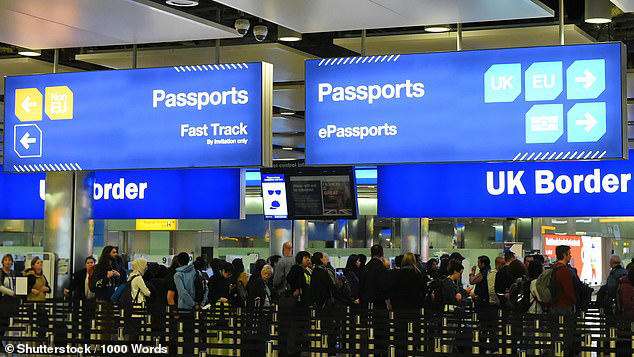The days of rummaging through your luggage for your passport at UK airports might be numbered. The Home Office is unveiling a revolutionary plan for “frictionless travel,” aiming to replace passports with advanced facial recognition technology at e-gates. This ambitious vision promises faster, smoother, and more secure border crossings for millions of travellers.
Goodbye Passports, Hello Facial Recognition:
Imagine gliding through an airport e-gate without the hassle of presenting your passport. The new hi-tech e-gates will utilize cutting-edge facial recognition software, eliminating the need for physical documents. This technology isn’t entirely new; countries like Dubai and Australia have already embraced similar systems, proving their efficiency and convenience.
Trials & Tribulations:
The UK government is wasting no time. Trials of the advanced e-gates are set to begin this year, paving the way for a wider rollout. Phil Douglas, Director-General of UK Border Force, emphasizes the goal of creating an “intelligent border” powered by “much more frictionless facial recognition than we currently do.”
Building a Seamless System:
The facial recognition system won’t operate in isolation. It will be integrated with the existing Electronic Travel Authorization (ETA) scheme, currently in place for some visa-exempt travellers. This online system pre-screens passengers, gathering information and ensuring compliance with immigration laws before they even board their flights.

A Global Shift:
The UK isn’t alone in its pursuit of streamlined border control. The ETA scheme is expanding, encompassing more nationalities every year. Additionally, the Home Office is exploring the possibility of implementing ETA for all short-stay visitors, including European nationals. This move towards pre-travel authorization aligns with similar initiatives adopted by other countries worldwide.
Harnessing Biometric Data:
British and Irish travellers already have their biometric details stored in the UK passport application system. This readily available data streamlines the facial recognition process for these individuals, further expediting their border crossings.
Security Concerns & Past Hiccups:
While the convenience factor of facial recognition e-gates is undeniable, security concerns linger. Data privacy and potential misuse of the technology are valid issues that need to be addressed transparently. Additionally, past technical glitches with existing e-gates raise questions about the reliability of the new system. The May bank holiday fiasco of 2023, where a system failure led to hours-long queues, serves as a stark reminder of the potential pitfalls.
Embracing the Future:
Despite these challenges, Phil Douglas remains confident. He predicts that the use of traditional passport desks will “fall away” in the next few years as the new technology takes hold. This ambitious vision signifies a paradigm shift in border control, one that prioritizes speed, efficiency, and convenience for travellers while upholding robust security measures.
The Road Ahead:
Trials later this year will be crucial in assessing the effectiveness and feasibility of the new e-gates. Addressing security concerns and ensuring seamless integration with existing systems will be paramount for the success of this ambitious project. If implemented thoughtfully, facial recognition e-gates could revolutionize the travel experience, ushering in an era of frictionless border crossings for millions of passengers.
Beyond the UK:
The UK’s initiative could serve as a catalyst for similar advancements in border control technology worldwide. As countries strive to balance security with efficiency, facial recognition e-gates might well become the norm, shaping the future of international travel.
Also Read: TOP 5 Locations To Spend Your New Year
The potential benefits of this technological leap are significant. Reduced waiting times, enhanced security, and a more personalized travel experience are just some of the promises on the horizon. However, navigating the ethical and technical challenges associated with facial recognition remains crucial. As the UK embarks on this ambitious journey, the world watches with keen interest, eager to see if the future of border control truly lies in saying goodbye to passports and embracing the gaze of advanced facial recognition technology.
